- AcademicsDegree TypeLocations
- Admissions
- Tuition & Aid
- Student Life
- About UNT
- Research
- Athletics
- Giving
Environmental Wellness
- Home
- Emotional Wellness
- Creative Wellness
- Intellectual Wellness
- Occupational Wellness
- Environmental Wellness
- Spiritual Wellness
- Financial Wellness
- Physical Wellness
- Social Wellness
- Wellbeing @ Work
Refers to a lifestyle that values the relationship between ourselves, our community and the environment
Environmental wellness includes accessing clean air, food and water and preserving
the areas where we live, learn and work. Environmental wellness is essential for occupying
pleasant, stimulating environments, and promoting learning and relaxation in natural
places.
Both the natural environment (the air, water and land that surrounds us) and the environments we create (our homes, workplaces and communities) have significant impacts on our health and wellness.
Both the natural environment (the air, water and land that surrounds us) and the environments we create (our homes, workplaces and communities) have significant impacts on our health and wellness.
Questions to ask yourself:
- Do I try to make my daily environments conducive to healthy and productive habits?
- Do I donate gently used or unused goods that can benefit someone else?
- Do I find time to explore nature and stay connected to the natural world?
- Am I recycling whenever possible and buying recycled products?
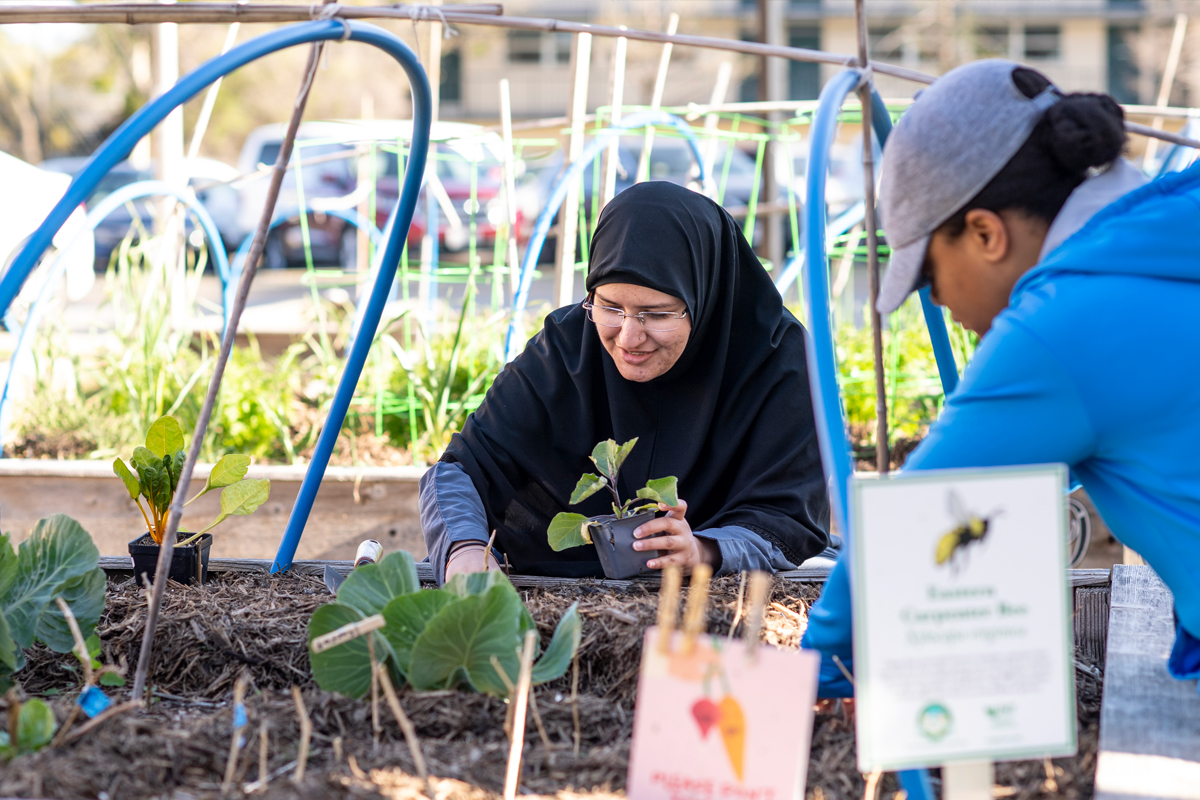
The UNT Community Garden is a space for collaborative learning, with 20 raised gardening plots that grow organic vegetables, fruits, herbs and flowers. Each plot is managed year-round by garden members who apply to care for a specific garden plot.
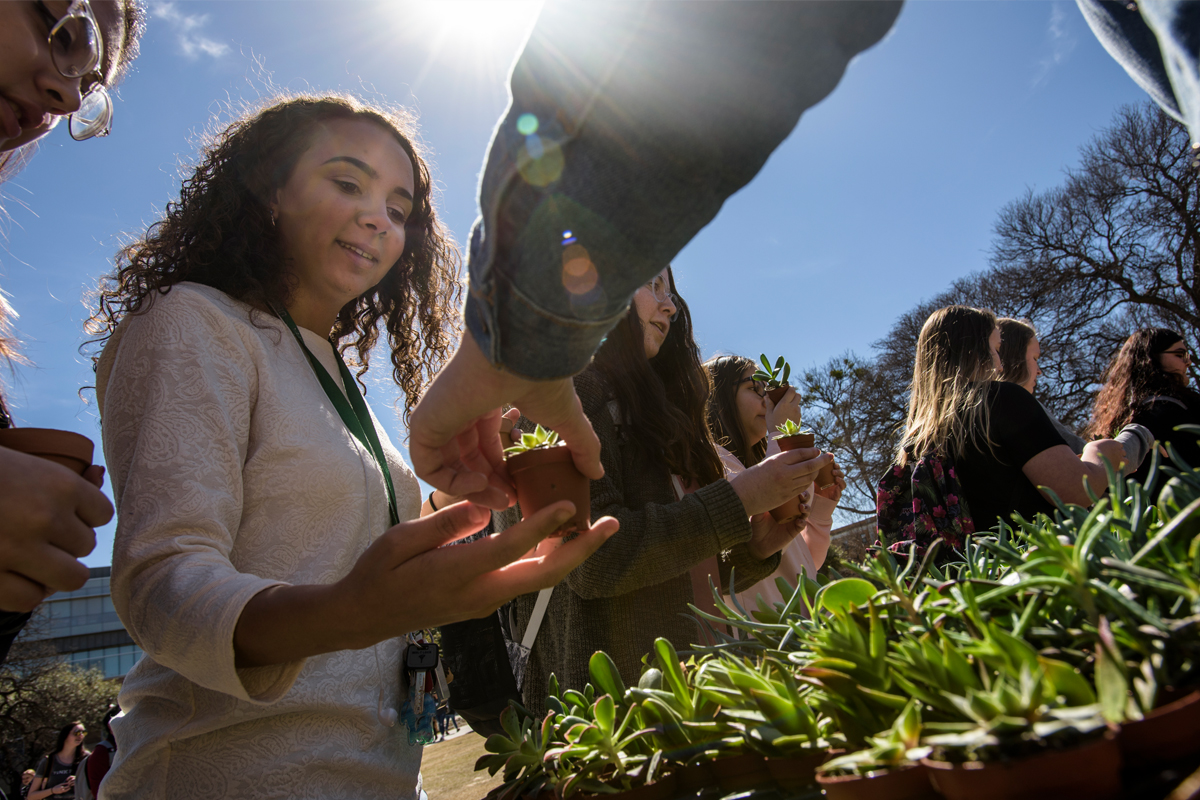
The We Mean Green Fund supports campus environmental improvement projects and sustainability initiatives proposed by UNT students, faculty and staff. Existing programs focus on community engagement; green energy, transit and buildings; nature and ecosystem; and waste reduction.
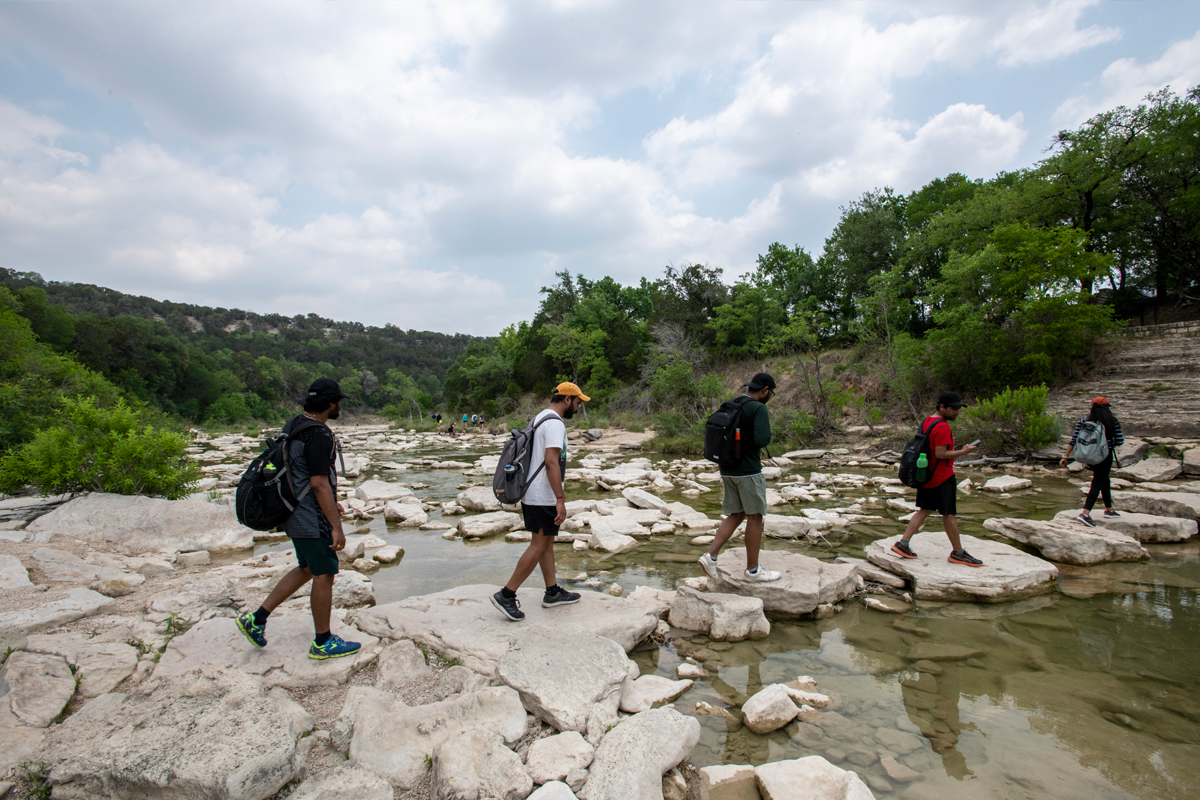
You can join upcoming adventure trips, learn new skills at free outdoor clinics or rent equipment for your next camping trip from Outdoor Pursuits, located at the Pohl Rec Center.
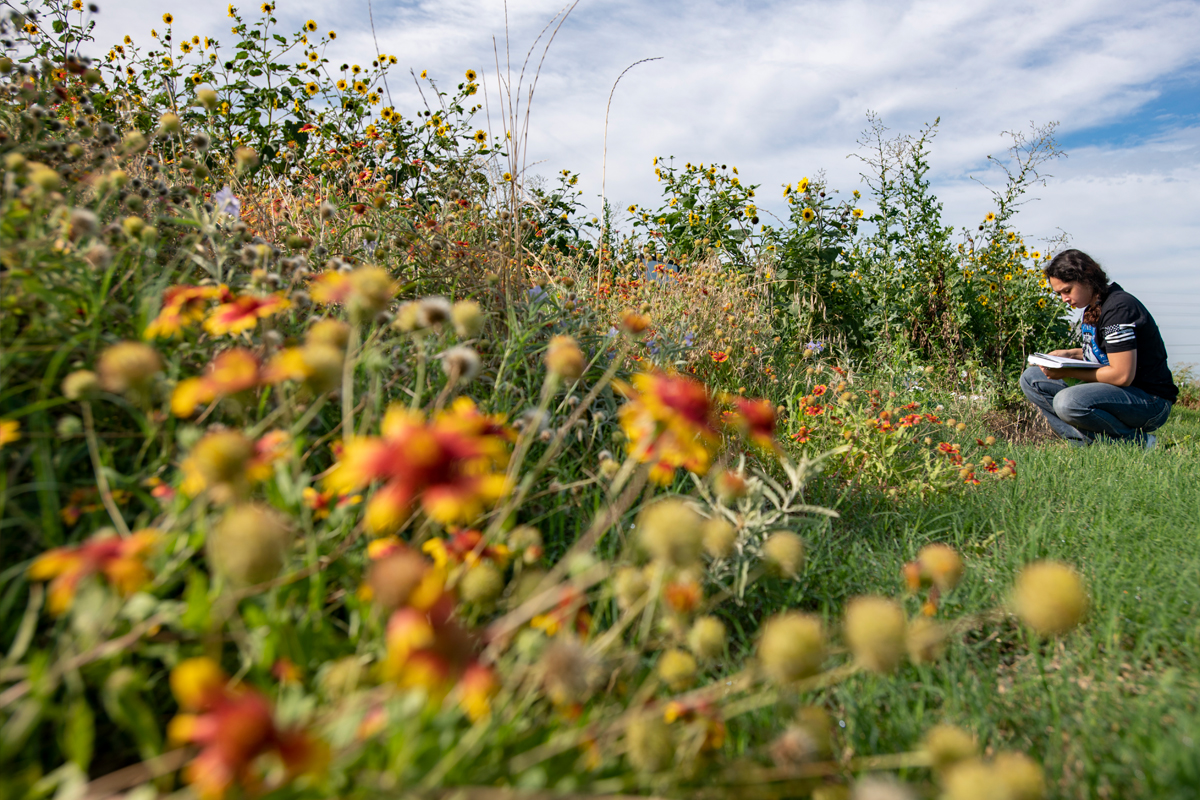
Located at UNT’s Discovery Park, the Pecan Creek Pollinative Prairie promotes conservation and sustainable urban landscaping of native habitats for declining pollinator populations, such as the American Bumblebee and Monarch Butterfly. Volunteer opportunities are available.
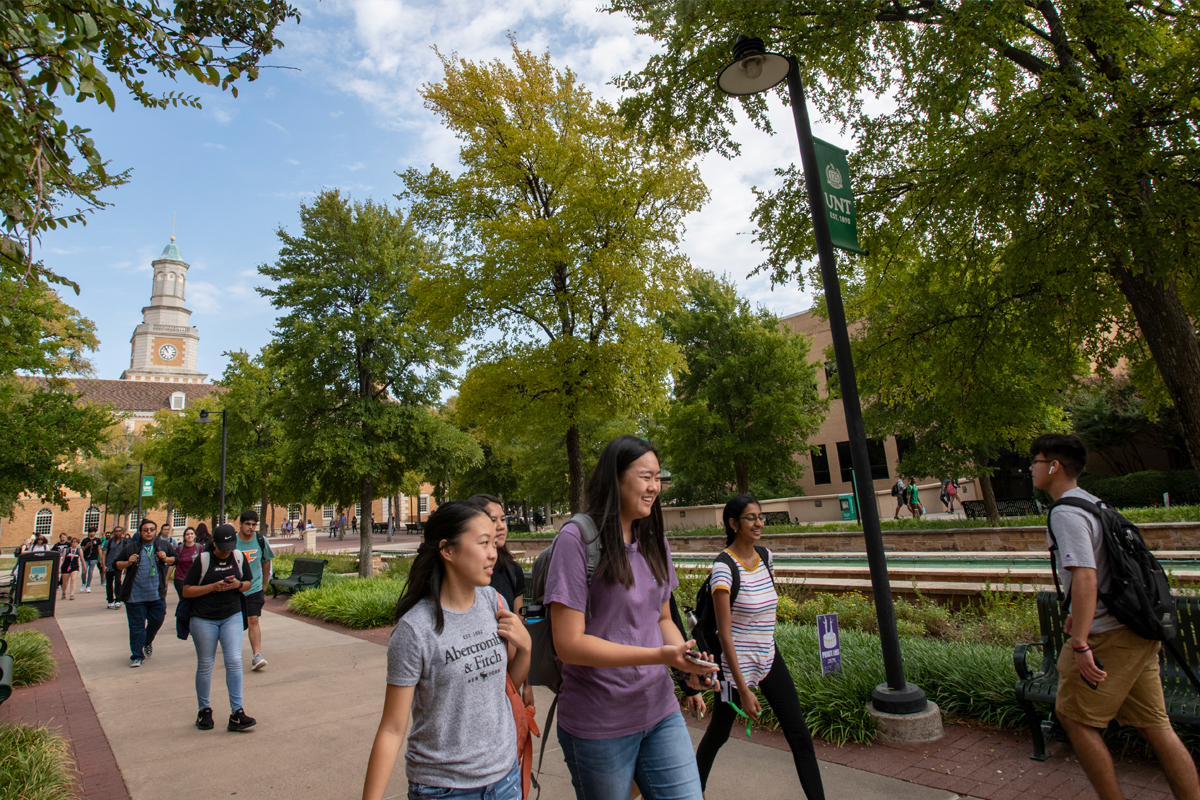
The National Institutes of Health outlines small steps you can take to make your environments safer and healthier.

The UNT Community Garden is a space for collaborative learning, with 20 raised gardening plots that grow organic vegetables, fruits, herbs, and flowers. Each plot is managed year-round by garden members who apply to care for a specific garden plot.

The We Mean Green Fund supports campus environmental improvement projects and sustainability initiatives proposed by UNT students, faculty, and staff. Existing programs focus on community engagement; green energy, transit and buildings; nature and ecosystem; and waste reduction.

You can join upcoming adventure trips, learn new skills at free outdoor clinics or rent equipment for your next camping trip from Outdoor Pursuits, located at the Pohl Rec Center.

Located at UNT’s Discovery Park, the Pecan Creek Pollinative Prairie promotes conservation and sustainable urban landscaping of native habitats for declining pollinator populations, such as the American Bumblebee and Monarch Butterfly. Volunteer opportunities are available.

The National Institutes of Health outlines small steps you can take to make your environments safer and healthier.